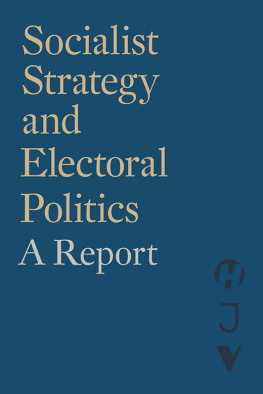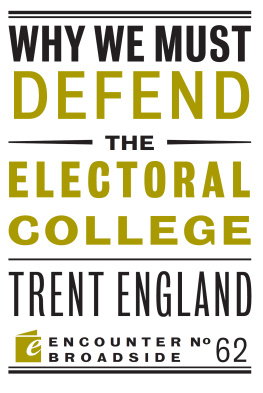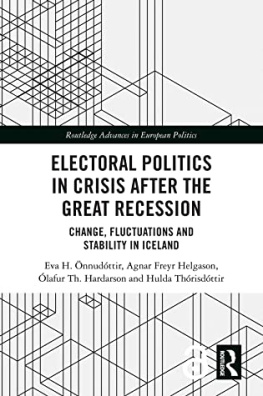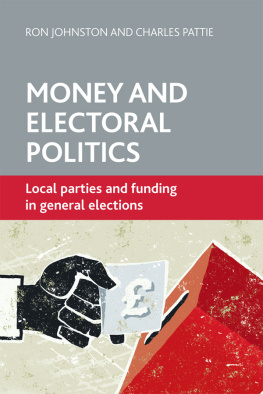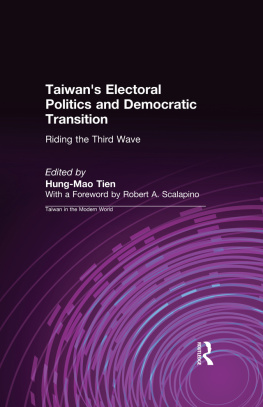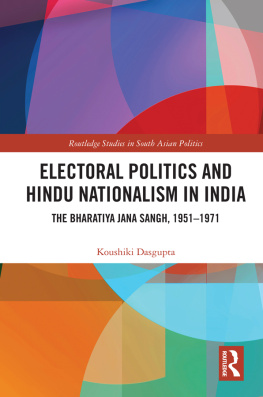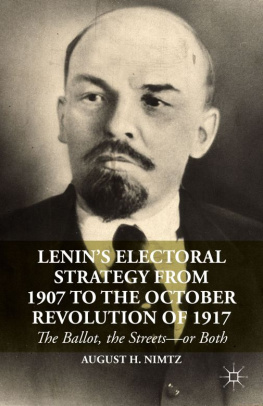Jacobin - Socialist Strategy and Electoral Politics: A Report
Here you can read online Jacobin - Socialist Strategy and Electoral Politics: A Report full text of the book (entire story) in english for free. Download pdf and epub, get meaning, cover and reviews about this ebook. publisher: Verso, genre: Politics. Description of the work, (preface) as well as reviews are available. Best literature library LitArk.com created for fans of good reading and offers a wide selection of genres:
Romance novel
Science fiction
Adventure
Detective
Science
History
Home and family
Prose
Art
Politics
Computer
Non-fiction
Religion
Business
Children
Humor
Choose a favorite category and find really read worthwhile books. Enjoy immersion in the world of imagination, feel the emotions of the characters or learn something new for yourself, make an fascinating discovery.
Socialist Strategy and Electoral Politics: A Report: summary, description and annotation
We offer to read an annotation, description, summary or preface (depends on what the author of the book "Socialist Strategy and Electoral Politics: A Report" wrote himself). If you haven't found the necessary information about the book — write in the comments, we will try to find it.
Jacobin: author's other books
Who wrote Socialist Strategy and Electoral Politics: A Report? Find out the surname, the name of the author of the book and a list of all author's works by series.
Socialist Strategy and Electoral Politics: A Report — read online for free the complete book (whole text) full work
Below is the text of the book, divided by pages. System saving the place of the last page read, allows you to conveniently read the book "Socialist Strategy and Electoral Politics: A Report" online for free, without having to search again every time where you left off. Put a bookmark, and you can go to the page where you finished reading at any time.
Font size:
Interval:
Bookmark:

AND ELECTORAL POLITICS
and Electoral Politics
A REPORT
A joint project of Jacobin, Haymarket Books,
and Verso Books

First published by Verso 2019
Collection Verso 2019
Jacobin 2018, excerpted and reprinted with permission from Jacobin, Seth Ackerman, and Daniel Denvir. Sofia Arias, Sumaya Awad, and Bill Mullen, 2018. Socialist Forum 2018, reprinted in edited form with permission from Socialist Forum and Ben Beckett. The Call 2018, reprinted with permission from The Call, Ben Beckett, and Neal Meyer. Eric Blanc, 2018. Todd Chretien, 2019. Danielle Corcione, Ariel Diliberto, and James Yeun, 2019. Meagan Day, 2018. Jacobin 2016, reprinted with permission from Jacobin and Barry Eidlin. Nick Estes, 2019. Jacobin 2014, reprinted in edited form with permission from Jacobin and Ted Fertik. Socialist Worker 2018, reprinted in edited form with permission from Socialist Worker and Lauren Fleer. Socialist Register 2017, excerpted and reprinted with permission from Merlin Press, Sam Gindin, and Leo Panitch. Jacobin 2018, reprinted with permission from Jacobin and Matthew Karp. Jacobin 2017, reprinted in edited form with permission from Jacobin and Kim Moody. Socialist Worker 2018, reprinted with permission from Socialist Worker and Charles Post. N+1 2018, reprinted with permission from N+1 and Aziz Rana. Socialist Alternative 2018, reprinted in edited form with permission from Socialist Alternative and Kshama Sawant. Jacobin and Dissent 2018, reprinted in edited form with permission from Jacobin, Dissent, and Lester Spence. Keeanga-Yamahtta Taylor, 2018. Viewpoint Magazine 2018, reprinted with permission from Viewpoint Magazine and the Viewpoint Collective.
All rights reserved
The moral rights of the authors have been asserted
1 3 5 7 9 10 8 6 4 2
Verso
UK: 6 Meard Street, London W1F 0EG
US: 20 Jay Street, Suite 1010, Brooklyn, NY 11201
versobooks.com
Verso is the imprint of New Left Books
ISBN-13: 9781788737456
By now practically everyone on the left agrees that the Democratic Party, with all its flaws, must be our main political arena theres a distinct realism now within the left on what we can do in American political life.
Michael Harrington, 1984
The horizon of the possibleand the necessaryis not the quixotic project of becoming a loyal fringe to one or another of the capitalist parties, but the fight to build an independent left politics that has real and effective social anchorage.
Mike Davis, 1986
Just after the November 2018 midterm elections, with the far-right authoritarian Jair Bolsonaro newly elected president of Brazil and fascist and far-right groups continuing to grow in confidence and influence across Europe and the US, Democratic Party standard-bearer Hillary Clinton suggested that European political leaders should curb immigration in order to stop the rise of right-wing populism. Recently re-elected House Speaker Nancy Pelosi, meanwhile, celebrated the Democrats midterm election gains by doubling down on the need for bipartisan cooperation with Trumps Republican Party.
The political terrain in the United States, in the absence of any institutional left or working-class party, is an especially stark example of a global phenomenon. As Perry Anderson argued in early 2017, in the wake of the Brexit vote in the UK, Donald Trumps presidential victory in the US, and several decades of neoliberal austerity, For anti-systemic movements of the left in Europe, the lesson of recent years is clear. If they are not to go on being outpaced by movements of the right, they cannot afford to be less radical in attacking the system, and must be more coherent in their opposition to it.
It has surprised few on the US left that the Democratic Partypurveyor of war, incarceration, and austerityhas failed to answer Andersons challenge in the two years since Trumps inauguration. Nor has it been unexpected that the Democratic Party establishment has learned little from Clintons 2016 loss to Trump or Bernie Sanders sustained popularity for attacking a system rigged in favor of the millionaires and billionaires. Instead, as Matt Karp and Kim Moody describe in this collection, powerful Democrats continue to look to moderate suburban voters and corporate donors to return their party to power.
This is, at least partially, because the US liberal establishment has no explanation for the 2016 presidential election of Donald Trump, and no programmatic answer to the growth of the far-right in the United Statesmuch less internationally. In contrast to liberal obsessions with the specter of Russian interference, public apathy, and Jill Stein voters, socialists and other leftists have been able to offer a framework through which to understand the 2016 presidential election results. They point to a long, bipartisan, history of the deliberate weaponization of race by both governing parties; the disaffection of millions of working and poor people who have been abused by both Democrats and Republicans in office (and who were, even if eligible, most likely not to have voted for any candidate in 2016); and, critically, the lack of a viable left-wing explanation and program to counter the rights racism and economic nationalism in the face of miserable conditions, particularly acute for working people following the financial crisis of 20072008.
Unlike the liberal establishment, therefore, the left has been able to clearly see the context for the successful combination of Trumps macho bluster, racism, misogyny, isolationism, and empty anti-establishment sloganeeringespecially appealing to affluent white voters, a dominant electoral demographic.
For the same reason, the organized leftthough still relatively smallis the only force positioned to challenge this toxic mixture. As Anderson put it, the left cannot afford to be less radical in attacking the system, and must be more coherent in our opposition to it, than the rising far-right. Fortunately, the left is rising too.
The 2016 Bernie Sanders campaignand the DNCs heavy-handed attempts to neutralize its threat to their anointed candidate, Clintonnot only popularized and legitimized a version of socialism in the popular consciousness, but, to some degree in spite of Sanders himself, spurred the growth of an organized socialist movement which for several generations prior had languished at the margins of the political landscape. Bernie endorsed and campaigned for Hillary, to be sure, but many of his supporters (even those who voted for Clinton in November 2016) were not satisfied to go back to politics as usual after their involvement in Bernies political revolution. Tens of thousands of them, many of whom had also participated in any number of formative social struggles during the Obama years, have now joined explicitly socialist organizations.
In the wake of the socialist movements rapid growth, described by Meagan Day, Kshama Sawant, and others in this collection, and the victory of insurgent democratic socialist candidates in the 2018 midterm elections, socialists face both new and old questions about strategy. While the questions are many, their premise is shared: the small, fragmented, and beleaguered socialist movement which survived four long decades of one-sided class war is finally resurgent in numbers, visibility, and hope that another world may, in fact, be possible. This rapid renewal has bred urgency: the feeling that, finally on the ascent, socialists must be ambitious and dynamic in their approach. For all its horrors and in part because of them, it seems that the possibilities of this political momentto offer a left alternative to disaffected working people in the face of liberal inaction and right-wing reaction and to marshal the solidaristic outlook of a debt-ridden generation into socialist organizationmay not last for long.
Font size:
Interval:
Bookmark:
Similar books «Socialist Strategy and Electoral Politics: A Report»
Look at similar books to Socialist Strategy and Electoral Politics: A Report. We have selected literature similar in name and meaning in the hope of providing readers with more options to find new, interesting, not yet read works.
Discussion, reviews of the book Socialist Strategy and Electoral Politics: A Report and just readers' own opinions. Leave your comments, write what you think about the work, its meaning or the main characters. Specify what exactly you liked and what you didn't like, and why you think so.

